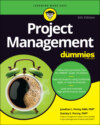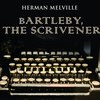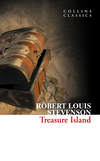Kitabı oku: «The Portrait of a Lady — Volume 2», sayfa 11
Isabel’s cheek burned when she asked herself if she had really married on a factitious theory, in order to do something finely appreciable with her money. But she was able to answer quickly enough that this was only half the story. It was because a certain ardour took possession of her—a sense of the earnestness of his affection and a delight in his personal qualities. He was better than any one else. This supreme conviction had filled her life for months, and enough of it still remained to prove to her that she could not have done otherwise. The finest—in the sense of being the subtlest—manly organism she had ever known had become her property, and the recognition of her having but to put out her hands and take it had been originally a sort of act of devotion. She had not been mistaken about the beauty of his mind; she knew that organ perfectly now. She had lived with it, she had lived in it almost—it appeared to have become her habitation. If she had been captured it had taken a firm hand to seize her; that reflection perhaps had some worth. A mind more ingenious, more pliant, more cultivated, more trained to admirable exercises, she had not encountered; and it was this exquisite instrument she had now to reckon with. She lost herself in infinite dismay when she thought of the magnitude of his deception. It was a wonder, perhaps, in view of this, that he didn’t hate her more. She remembered perfectly the first sign he had given of it—it had been like the bell that was to ring up the curtain upon the real drama of their life. He said to her one day that she had too many ideas and that she must get rid of them. He had told her that already, before their marriage; but then she had not noticed it: it had come back to her only afterwards. This time she might well have noticed it, because he had really meant it. The words had been nothing superficially; but when in the light of deepening experience she had looked into them they had then appeared portentous. He had really meant it—he would have liked her to have nothing of her own but her pretty appearance. She had known she had too many ideas; she had more even than he had supposed, many more than she had expressed to him when he had asked her to marry him. Yes, she had been hypocritical; she had liked him so much. She had too many ideas for herself; but that was just what one married for, to share them with some one else. One couldn’t pluck them up by the roots, though of course one might suppress them, be careful not to utter them. It had not been this, however, his objecting to her opinions; this had been nothing. She had no opinions—none that she would not have been eager to sacrifice in the satisfaction of feeling herself loved for it. What he had meant had been the whole thing—her character, the way she felt, the way she judged. This was what she had kept in reserve; this was what he had not known until he had found himself—with the door closed behind, as it were—set down face to face with it. She had a certain way of looking at life which he took as a personal offence. Heaven knew that now at least it was a very humble, accommodating way! The strange thing was that she should not have suspected from the first that his own had been so different. She had thought it so large, so enlightened, so perfectly that of an honest man and a gentleman. Hadn’t he assured her that he had no superstitions, no dull limitations, no prejudices that had lost their freshness? Hadn’t he all the appearance of a man living in the open air of the world, indifferent to small considerations, caring only for truth and knowledge and believing that two intelligent people ought to look for them together and, whether they found them or not, find at least some happiness in the search? He had told her he loved the conventional; but there was a sense in which this seemed a noble declaration. In that sense, that of the love of harmony and order and decency and of all the stately offices of life, she went with him freely, and his warning had contained nothing ominous. But when, as the months had elapsed, she had followed him further and he had led her into the mansion of his own habitation, then, then she had seen where she really was.
She could live it over again, the incredulous terror with which she had taken the measure of her dwelling. Between those four walls she had lived ever since; they were to surround her for the rest of her life. It was the house of darkness, the house of dumbness, the house of suffocation. Osmond’s beautiful mind gave it neither light nor air; Osmond’s beautiful mind indeed seemed to peep down from a small high window and mock at her. Of course it had not been physical suffering; for physical suffering there might have been a remedy. She could come and go; she had her liberty; her husband was perfectly polite. He took himself so seriously; it was something appalling. Under all his culture, his cleverness, his amenity, under his good-nature, his facility, his knowledge of life, his egotism lay hidden like a serpent in a bank of flowers. She had taken him seriously, but she had not taken him so seriously as that. How could she—especially when she had known him better? She was to think of him as he thought of himself—as the first gentleman in Europe. So it was that she had thought of him at first, and that indeed was the reason she had married him. But when she began to see what it implied she drew back; there was more in the bond than she had meant to put her name to. It implied a sovereign contempt for every one but some three or four very exalted people whom he envied, and for everything in the world but half a dozen ideas of his own. That was very well; she would have gone with him even there a long distance; for he pointed out to her so much of the baseness and shabbiness of life, opened her eyes so wide to the stupidity, the depravity, the ignorance of mankind, that she had been properly impressed with the infinite vulgarity of things and of the virtue of keeping one’s self unspotted by it. But this base, if noble world, it appeared, was after all what one was to live for; one was to keep it forever in one’s eye, in order not to enlighten or convert or redeem it, but to extract from it some recognition of one’s own superiority. On the one hand it was despicable, but on the other it afforded a standard. Osmond had talked to Isabel about his renunciation, his indifference, the ease with which he dispensed with the usual aids to success; and all this had seemed to her admirable. She had thought it a grand indifference, an exquisite independence. But indifference was really the last of his qualities; she had never seen any one who thought so much of others. For herself, avowedly, the world had always interested her and the study of her fellow creatures been her constant passion. She would have been willing, however, to renounce all her curiosities and sympathies for the sake of a personal life, if the person concerned had only been able to make her believe it was a gain! This at least was her present conviction; and the thing certainly would have been easier than to care for society as Osmond cared for it.
He was unable to live without it, and she saw that he had never really done so; he had looked at it out of his window even when he appeared to be most detached from it. He had his ideal, just as she had tried to have hers; only it was strange that people should seek for justice in such different quarters. His ideal was a conception of high prosperity and propriety, of the aristocratic life, which she now saw that he deemed himself always, in essence at least, to have led. He had never lapsed from it for an hour; he would never have recovered from the shame of doing so. That again was very well; here too she would have agreed; but they attached such different ideas, such different associations and desires, to the same formulas. Her notion of the aristocratic life was simply the union of great knowledge with great liberty; the knowledge would give one a sense of duty and the liberty a sense of enjoyment. But for Osmond it was altogether a thing of forms, a conscious, calculated attitude. He was fond of the old, the consecrated, the transmitted; so was she, but she pretended to do what she chose with it. He had an immense esteem for tradition; he had told her once that the best thing in the world was to have it, but that if one was so unfortunate as not to have it one must immediately proceed to make it. She knew that he meant by this that she hadn’t it, but that he was better off; though from what source he had derived his traditions she never learned. He had a very large collection of them, however; that was very certain, and after a little she began to see. The great thing was to act in accordance with them; the great thing not only for him but for her. Isabel had an undefined conviction that to serve for another person than their proprietor traditions must be of a thoroughly superior kind; but she nevertheless assented to this intimation that she too must march to the stately music that floated down from unknown periods in her husband’s past; she who of old had been so free of step, so desultory, so devious, so much the reverse of processional. There were certain things they must do, a certain posture they must take, certain people they must know and not know. When she saw this rigid system close about her, draped though it was in pictured tapestries, that sense of darkness and suffocation of which I have spoken took possession of her; she seemed shut up with an odour of mould and decay. She had resisted of course; at first very humorously, ironically, tenderly; then, as the situation grew more serious, eagerly, passionately, pleadingly. She had pleaded the cause of freedom, of doing as they chose, of not caring for the aspect and denomination of their life—the cause of other instincts and longings, of quite another ideal.
Then it was that her husband’s personality, touched as it never had been, stepped forth and stood erect. The things she had said were answered only by his scorn, and she could see he was ineffably ashamed of her. What did he think of her—that she was base, vulgar, ignoble? He at least knew now that she had no traditions! It had not been in his prevision of things that she should reveal such flatness; her sentiments were worthy of a radical newspaper or a Unitarian preacher. The real offence, as she ultimately perceived, was her having a mind of her own at all. Her mind was to be his—attached to his own like a small garden-plot to a deer-park. He would rake the soil gently and water the flowers; he would weed the beds and gather an occasional nosegay. It would be a pretty piece of property for a proprietor already far-reaching. He didn’t wish her to be stupid. On the contrary, it was because she was clever that she had pleased him. But he expected her intelligence to operate altogether in his favour, and so far from desiring her mind to be a blank he had flattered himself that it would be richly receptive. He had expected his wife to feel with him and for him, to enter into his opinions, his ambitions, his preferences; and Isabel was obliged to confess that this was no great insolence on the part of a man so accomplished and a husband originally at least so tender. But there were certain things she could never take in. To begin with, they were hideously unclean. She was not a daughter of the Puritans, but for all that she believed in such a thing as chastity and even as decency. It would appear that Osmond was far from doing anything of the sort; some of his traditions made her push back her skirts. Did all women have lovers? Did they all lie and even the best have their price? Were there only three or four that didn’t deceive their husbands? When Isabel heard such things she felt a greater scorn for them than for the gossip of a village parlour—a scorn that kept its freshness in a very tainted air. There was the taint of her sister-in-law: did her husband judge only by the Countess Gemini? This lady very often lied, and she had practised deceptions that were not simply verbal. It was enough to find these facts assumed among Osmond’s traditions—it was enough without giving them such a general extension. It was her scorn of his assumptions, it was this that made him draw himself up. He had plenty of contempt, and it was proper his wife should be as well furnished; but that she should turn the hot light of her disdain upon his own conception of things—this was a danger he had not allowed for. He believed he should have regulated her emotions before she came to it; and Isabel could easily imagine how his ears had scorched on his discovering he had been too confident. When one had a wife who gave one that sensation there was nothing left but to hate her.
She was morally certain now that this feeling of hatred, which at first had been a refuge and a refreshment, had become the occupation and comfort of his life. The feeling was deep, because it was sincere; he had had the revelation that she could after all dispense with him. If to herself the idea was startling, if it presented itself at first as a kind of infidelity, a capacity for pollution, what infinite effect might it not be expected to have had upon him? It was very simple; he despised her; she had no traditions and the moral horizon of a Unitarian minister. Poor Isabel, who had never been able to understand Unitarianism! This was the certitude she had been living with now for a time that she had ceased to measure. What was coming—what was before them? That was her constant question. What would he do—what ought she to do? When a man hated his wife what did it lead to? She didn’t hate him, that she was sure of, for every little while she felt a passionate wish to give him a pleasant surprise. Very often, however, she felt afraid, and it used to come over her, as I have intimated, that she had deceived him at the very first. They were strangely married, at all events, and it was a horrible life. Until that morning he had scarcely spoken to her for a week; his manner was as dry as a burned-out fire. She knew there was a special reason; he was displeased at Ralph Touchett’s staying on in Rome. He thought she saw too much of her cousin—he had told her a week before it was indecent she should go to him at his hotel. He would have said more than this if Ralph’s invalid state had not appeared to make it brutal to denounce him; but having had to contain himself had only deepened his disgust. Isabel read all this as she would have read the hour on the clock-face; she was as perfectly aware that the sight of her interest in her cousin stirred her husband’s rage as if Osmond had locked her into her room—which she was sure was what he wanted to do. It was her honest belief that on the whole she was not defiant, but she certainly couldn’t pretend to be indifferent to Ralph. She believed he was dying at last and that she should never see him again, and this gave her a tenderness for him that she had never known before. Nothing was a pleasure to her now; how could anything be a pleasure to a woman who knew that she had thrown away her life? There was an everlasting weight on her heart—there was a livid light on everything. But Ralph’s little visit was a lamp in the darkness; for the hour that she sat with him her ache for herself became somehow her ache for him. She felt to-day as if he had been her brother. She had never had a brother, but if she had and she were in trouble and he were dying, he would be dear to her as Ralph was. Ah yes, if Gilbert was jealous of her there was perhaps some reason; it didn’t make Gilbert look better to sit for half an hour with Ralph. It was not that they talked of him—it was not that she complained. His name was never uttered between them. It was simply that Ralph was generous and that her husband was not. There was something in Ralph’s talk, in his smile, in the mere fact of his being in Rome, that made the blasted circle round which she walked more spacious. He made her feel the good of the world; he made her feel what might have been. He was after all as intelligent as Osmond—quite apart from his being better. And thus it seemed to her an act of devotion to conceal her misery from him. She concealed it elaborately; she was perpetually, in their talk, hanging out curtains and before her again—it lived before her again,—it had never had time to die—that morning in the garden at Florence when he had warned her against Osmond. She had only to close her eyes to see the place, to hear his voice, to feel the warm, sweet air. How could he have known? What a mystery, what a wonder of wisdom! As intelligent as Gilbert? He was much more intelligent—to arrive at such a judgement as that. Gilbert had never been so deep, so just. She had told him then that from her at least he should never know if he was right; and this was what she was taking care of now. It gave her plenty to do; there was passion, exaltation, religion in it. Women find their religion sometimes in strange exercises, and Isabel at present, in playing a part before her cousin, had an idea that she was doing him a kindness. It would have been a kindness perhaps if he had been for a single instant a dupe. As it was, the kindness consisted mainly in trying to make him believe that he had once wounded her greatly and that the event had put him to shame, but that, as she was very generous and he was so ill, she bore him no grudge and even considerately forbore to flaunt her happiness in his face. Ralph smiled to himself, as he lay on his sofa, at this extraordinary form of consideration; but he forgave her for having forgiven him. She didn’t wish him to have the pain of knowing she was unhappy: that was the great thing, and it didn’t matter that such knowledge would rather have righted him.
For herself, she lingered in the soundless saloon long after the fire had gone out. There was no danger of her feeling the cold; she was in a fever. She heard the small hours strike, and then the great ones, but her vigil took no heed of time. Her mind, assailed by visions, was in a state of extraordinary activity, and her visions might as well come to her there, where she sat up to meet them, as on her pillow, to make a mockery of rest. As I have said, she believed she was not defiant, and what could be a better proof of it than that she should linger there half the night, trying to persuade herself that there was no reason why Pansy shouldn’t be married as you would put a letter in the post-office? When the clock struck four she got up; she was going to bed at last, for the lamp had long since gone out and the candles burned down to their sockets. But even then she stopped again in the middle of the room and stood there gazing at a remembered vision—that of her husband and Madame Merle unconsciously and familiarly associated.
CHAPTER XLIII
Three nights after this she took Pansy to a great party, to which Osmond, who never went to dances, did not accompany them. Pansy was as ready for a dance as ever; she was not of a generalising turn and had not extended to other pleasures the interdict she had seen placed on those of love. If she was biding her time or hoping to circumvent her father she must have had a prevision of success. Isabel thought this unlikely; it was much more likely that Pansy had simply determined to be a good girl. She had never had such a chance, and she had a proper esteem for chances. She carried herself no less attentively than usual and kept no less anxious an eye upon her vaporous skirts; she held her bouquet very tight and counted over the flowers for the twentieth time. She made Isabel feel old; it seemed so long since she had been in a flutter about a ball. Pansy, who was greatly admired, was never in want of partners, and very soon after their arrival she gave Isabel, who was not dancing, her bouquet to hold. Isabel had rendered her this service for some minutes when she became aware of the near presence of Edward Rosier. He stood before her; he had lost his affable smile and wore a look of almost military resolution. The change in his appearance would have made Isabel smile if she had not felt his case to be at bottom a hard one: he had always smelt so much more of heliotrope than of gunpowder. He looked at her a moment somewhat fiercely, as if to notify her he was dangerous, and then dropped his eyes on her bouquet. After he had inspected it his glance softened and he said quickly: “It’s all pansies; it must be hers!”
Isabel smiled kindly. “Yes, it’s hers; she gave it to me to hold.”
“May I hold it a little, Mrs. Osmond?” the poor young man asked.
“No, I can’t trust you; I’m afraid you wouldn’t give it back.”
“I’m not sure that I should; I should leave the house with it instantly. But may I not at least have a single flower?”
Isabel hesitated a moment, and then, smiling still, held out the bouquet. “Choose one yourself. It’s frightful what I’m doing for you.”
“Ah, if you do no more than this, Mrs. Osmond!” Rosier exclaimed with his glass in one eye, carefully choosing his flower.
“Don’t put it into your button-hole,” she said. “Don’t for the world!”
“I should like her to see it. She has refused to dance with me, but I wish to show her that I believe in her still.”
“It’s very well to show it to her, but it’s out of place to show it to others. Her father has told her not to dance with you.”
“And is that all you can do for me? I expected more from you, Mrs. Osmond,” said the young man in a tone of fine general reference. “You know our acquaintance goes back very far—quite into the days of our innocent childhood.”
“Don’t make me out too old,” Isabel patiently answered. “You come back to that very often, and I’ve never denied it. But I must tell you that, old friends as we are, if you had done me the honour to ask me to marry you I should have refused you on the spot.”
“Ah, you don’t esteem me then. Say at once that you think me a mere Parisian trifler!”
“I esteem you very much, but I’m not in love with you. What I mean by that, of course, is that I’m not in love with you for Pansy.”
“Very good; I see. You pity me—that’s all.” And Edward Rosier looked all round, inconsequently, with his single glass. It was a revelation to him that people shouldn’t be more pleased; but he was at least too proud to show that the deficiency struck him as general.
Isabel for a moment said nothing. His manner and appearance had not the dignity of the deepest tragedy; his little glass, among other things, was against that. But she suddenly felt touched; her own unhappiness, after all, had something in common with his, and it came over her, more than before, that here, in recognisable, if not in romantic form, was the most affecting thing in the world—young love struggling with adversity. “Would you really be very kind to her?” she finally asked in a low tone.
He dropped his eyes devoutly and raised the little flower that he held in his fingers to his lips. Then he looked at her. “You pity me; but don’t you pity her a little?”
“I don’t know; I’m not sure. She’ll always enjoy life.”
“It will depend on what you call life!” Mr. Rosier effectively said. “She won’t enjoy being tortured.”
“There’ll be nothing of that.”
“I’m glad to hear it. She knows what she’s about. You’ll see.”
“I think she does, and she’ll never disobey her father. But she’s coming back to me,” Isabel added, “and I must beg you to go away.”
Rosier lingered a moment till Pansy came in sight on the arm of her cavalier; he stood just long enough to look her in the face. Then he walked away, holding up his head; and the manner in which he achieved this sacrifice to expediency convinced Isabel he was very much in love.
Pansy, who seldom got disarranged in dancing, looking perfectly fresh and cool after this exercise, waited a moment and then took back her bouquet. Isabel watched her and saw she was counting the flowers; whereupon she said to herself that decidedly there were deeper forces at play than she had recognised. Pansy had seen Rosier turn away, but she said nothing to Isabel about him; she talked only of her partner, after he had made his bow and retired; of the music, the floor, the rare misfortune of having already torn her dress. Isabel was sure, however, she had discovered her lover to have abstracted a flower; though this knowledge was not needed to account for the dutiful grace with which she responded to the appeal of her next partner. That perfect amenity under acute constraint was part of a larger system. She was again led forth by a flushed young man, this time carrying her bouquet; and she had not been absent many minutes when Isabel saw Lord Warburton advancing through the crowd. He presently drew near and bade her good-evening; she had not seen him since the day before. He looked about him, and then “Where’s the little maid?” he asked. It was in this manner that he had formed the harmless habit of alluding to Miss Osmond.
“She’s dancing,” said Isabel. “You’ll see her somewhere.”
He looked among the dancers and at last caught Pansy’s eye. “She sees me, but she won’t notice me,” he then remarked. “Are you not dancing?”
“As you see, I’m a wall-flower.”
“Won’t you dance with me?”
“Thank you; I’d rather you should dance with the little maid.”
“One needn’t prevent the other—especially as she’s engaged.”
“She’s not engaged for everything, and you can reserve yourself. She dances very hard, and you’ll be the fresher.”
“She dances beautifully,” said Lord Warburton, following her with his eyes. “Ah, at last,” he added, “she has given me a smile.” He stood there with his handsome, easy, important physiognomy; and as Isabel observed him it came over her, as it had done before, that it was strange a man of his mettle should take an interest in a little maid. It struck her as a great incongruity; neither Pansy’s small fascinations, nor his own kindness, his good-nature, not even his need for amusement, which was extreme and constant, were sufficient to account for it. “I should like to dance with you,” he went on in a moment, turning back to Isabel; “but I think I like even better to talk with you.”
“Yes, it’s better, and it’s more worthy of your dignity. Great statesmen oughtn’t to waltz.”
“Don’t be cruel. Why did you recommend me then to dance with Miss Osmond?”
“Ah, that’s different. If you danced with her it would look simply like a piece of kindness—as if you were doing it for her amusement. If you dance with me you’ll look as if you were doing it for your own.”
“And pray haven’t I a right to amuse myself?”
“No, not with the affairs of the British Empire on your hands.”
“The British Empire be hanged! You’re always laughing at it.”
“Amuse yourself with talking to me,” said Isabel.
“I’m not sure it’s really a recreation. You’re too pointed; I’ve always to be defending myself. And you strike me as more than usually dangerous to-night. Will you absolutely not dance?”
“I can’t leave my place. Pansy must find me here.”
He was silent a little. “You’re wonderfully good to her,” he said suddenly.
Isabel stared a little and smiled. “Can you imagine one’s not being?”
“No indeed. I know how one is charmed with her. But you must have done a great deal for her.”
“I’ve taken her out with me,” said Isabel, smiling still. “And I’ve seen that she has proper clothes.”
“Your society must have been a great benefit to her. You’ve talked to her, advised her, helped her to develop.”
“Ah yes, if she isn’t the rose she has lived near it.”
She laughed, and her companion did as much; but there was a certain visible preoccupation in his face which interfered with complete hilarity. “We all try to live as near it as we can,” he said after a moment’s hesitation.
Isabel turned away; Pansy was about to be restored to her, and she welcomed the diversion. We know how much she liked Lord Warburton; she thought him pleasanter even than the sum of his merits warranted; there was something in his friendship that appeared a kind of resource in case of indefinite need; it was like having a large balance at the bank. She felt happier when he was in the room; there was something reassuring in his approach; the sound of his voice reminded her of the beneficence of nature. Yet for all that it didn’t suit her that he should be too near her, that he should take too much of her good-will for granted. She was afraid of that; she averted herself from it; she wished he wouldn’t. She felt that if he should come too near, as it were, it might be in her to flash out and bid him keep his distance. Pansy came back to Isabel with another rent in her skirt, which was the inevitable consequence of the first and which she displayed to Isabel with serious eyes. There were too many gentlemen in uniform; they wore those dreadful spurs, which were fatal to the dresses of little maids. It hereupon became apparent that the resources of women are innumerable. Isabel devoted herself to Pansy’s desecrated drapery; she fumbled for a pin and repaired the injury; she smiled and listened to her account of her adventures. Her attention, her sympathy were immediate and active; and they were in direct proportion to a sentiment with which they were in no way connected—a lively conjecture as to whether Lord Warburton might be trying to make love to her. It was not simply his words just then; it was others as well; it was the reference and the continuity. This was what she thought about while she pinned up Pansy’s dress. If it were so, as she feared, he was of course unwitting; he himself had not taken account of his intention. But this made it none the more auspicious, made the situation none less impossible. The sooner he should get back into right relations with things the better. He immediately began to talk to Pansy—on whom it was certainly mystifying to see that he dropped a smile of chastened devotion. Pansy replied, as usual, with a little air of conscientious aspiration; he had to bend toward her a good deal in conversation, and her eyes, as usual, wandered up and down his robust person as if he had offered it to her for exhibition. She always seemed a little frightened; yet her fright was not of the painful character that suggests dislike; on the contrary, she looked as if she knew that he knew she liked him. Isabel left them together a little and wandered toward a friend whom she saw near and with whom she talked till the music of the following dance began, for which she knew Pansy to be also engaged. The girl joined her presently, with a little fluttered flush, and Isabel, who scrupulously took Osmond’s view of his daughter’s complete dependence, consigned her, as a precious and momentary loan, to her appointed partner. About all this matter she had her own imaginations, her own reserves; there were moments when Pansy’s extreme adhesiveness made each of them, to her sense, look foolish. But Osmond had given her a sort of tableau of her position as his daughter’s duenna, which consisted of gracious alternations of concession and contraction; and there were directions of his which she liked to think she obeyed to the letter. Perhaps, as regards some of them, it was because her doing so appeared to reduce them to the absurd.




















